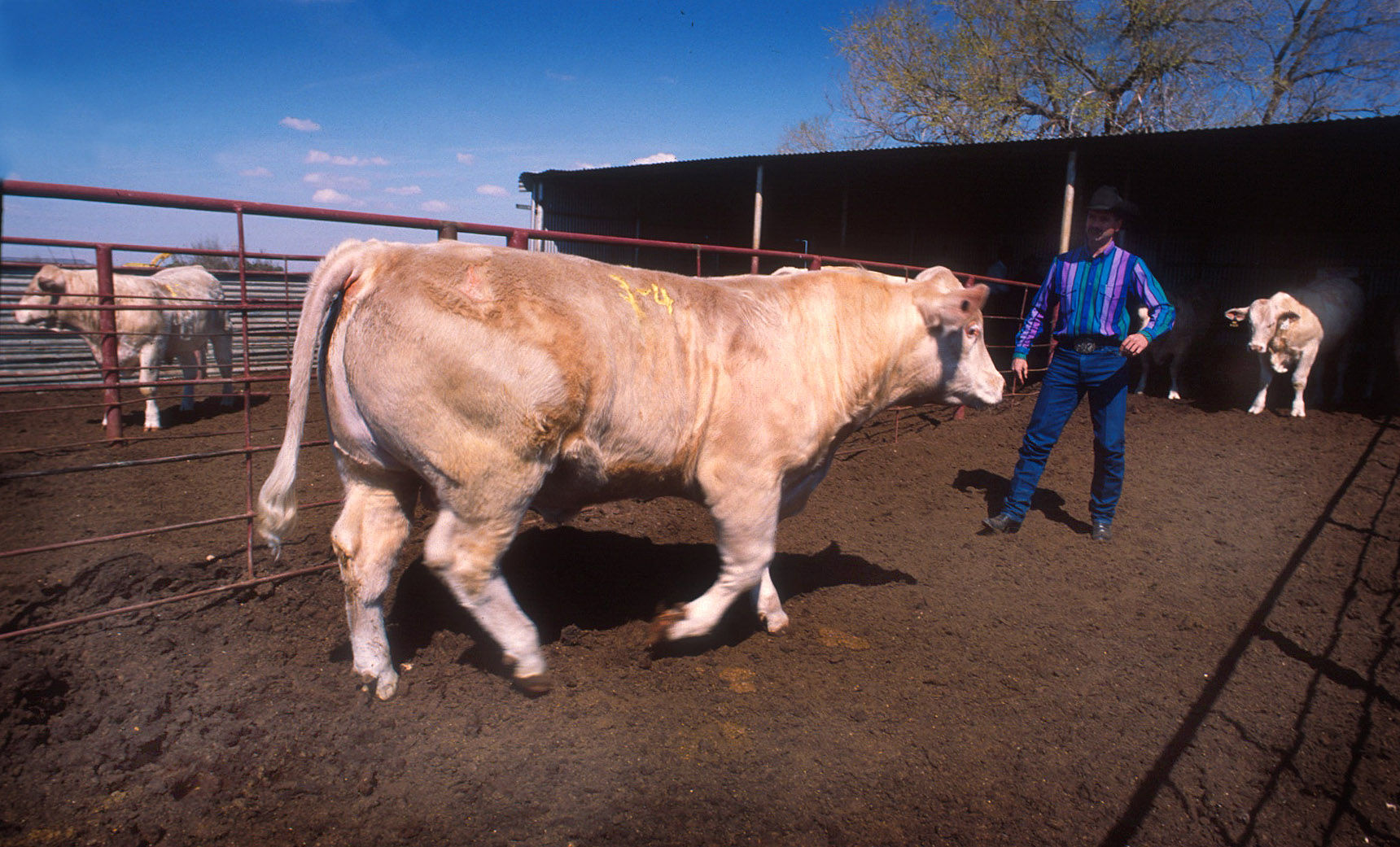The largest offering of bulls in the history of the Tucumcari Performance Bull Test and Sale will be presented at the annual sale on March 10.
The sale is the conclusion of the performance test held at New Mexico State University’s Agricultural Science Center at Tucumcari. Viewing of the animals will begin at 10 a.m., followed by lunch at noon and the sale beginning at 1 p.m.
“This is probably the biggest performance test sale we have ever had at this facility with 142 bulls and 15 yearling heifers,” said Marcy Ward, NMSU’s College of Agricultural, Consumer and Environmental Sciences Extension livestock specialist. “There will be bulls from five different breeds, including Angus, Hereford, Red Angus, Charolais and, for the first time, Braunvieh.”
This year, 22 producers from New Mexico, Texas and Colorado have had 160 bulls participate in the performance test that has used the GrowSafe feed system to monitor their feed consumption to the ounce.
“We added two more computerized feeders to allow us to monitor 80 bulls at a time, so we now have a one-time testing capacity of 160 bulls,” Ward said. “The data is demonstrating how much less forage and feed these animals are going to require to get the same amount of weight gain. The average daily gain has been over four pounds for the Angus group of 113 bulls.”
New this year is the convenience of attending the sale from the comfort of a buyer’s home.
“The auction will be internet broadcast with live online bidding through DVAuction,” Ward said. “There will be video of each animal during the bidding. Also, buyers can visit our website at tucbulltest.nmsu.edu prior to the sale to preview the video catalog and sale catalog.”
The sale participation has grown over the last couple of years.
“I think our customer base is beginning to appreciate the value of the information we provide through the GrowSafe system to help them make their decisions,” Ward said. “The producers’ breeding programs are producing bulls that are going to be eating less feed and forage to get the same job done. This is important, especially during drought times.”
For more information about the producers and the bulls being sold, visit tucbulltest.nmsu.edu.

